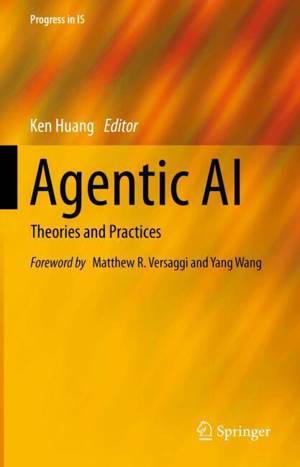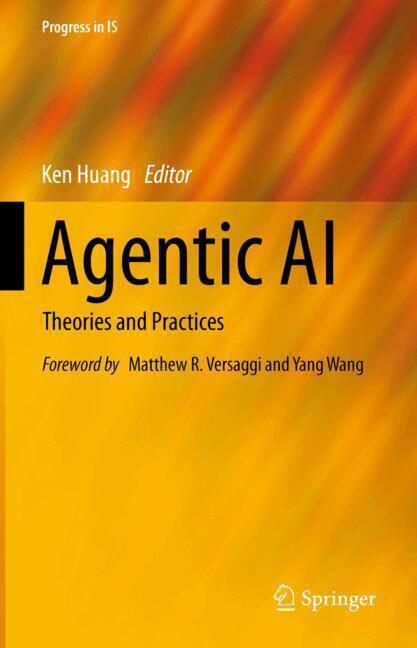
- Afhalen na 1 uur in een winkel met voorraad
- Gratis thuislevering in België vanaf € 30
- Ruim aanbod met 7 miljoen producten
- Afhalen na 1 uur in een winkel met voorraad
- Gratis thuislevering in België vanaf € 30
- Ruim aanbod met 7 miljoen producten
Zoeken
Omschrijving
This book analyzes the rise and transformative impact of generative AI agents or Agentic AI across industries, offering a comprehensive exploration of their development, applications, and implications. It highlights how these systems are revolutionizing business processes, enhancing decision-making, and reshaping entire sectors from finance to healthcare. It traces the evolution of AI agents from early programs to today's sophisticated autonomous systems, providing a taxonomy of agent types. It then explores cutting-edge tools and frameworks for development, such as AutoGen, Langgraph, and CrewAI, offering practical insights for their deployment. Key focus areas include evaluating multiagent systems and coordination techniques, addressing challenges in communication, and conflict resolution. The book presents case studies from banking, insurance, healthcare, and cybersecurity, showcasing how autonomous agents are automating tasks and driving innovation. In turn, the book provides in-depth analyses of Agentic AI in emerging fields like gene editing, robotics, and business process automation, demonstrating its potential to accelerate scientific research and value creation. The discussion extends to economic ramifications, examining impacts on macroeconomic trends, microeconomic dynamics within businesses, and the emergence of decentralized, token-based economies. Throughout, thought-provoking questions encourage readers to consider the broader implications of these technological advances. The work concludes with a critical examination of related safety and security considerations, emphasizing the need for proactive measures. Maintaining a forward-looking perspective, it prompts readers to consider how these technologies might reshape industries and society, raising important questions about the changing nature of work, ethical aspects, and equitable distribution of benefits. Bridging theoretical foundations and practical applications, the book offers valuable insights for data scientists, IT managers, CIOs, CAIOs, CTOs, business analysts, and graduate students seeking to understand and apply AI's transformative potential across various industries.
Specificaties
Betrokkenen
- Uitgeverij:
Inhoud
- Aantal bladzijden:
- 394
- Taal:
- Engels
- Reeks:
Eigenschappen
- Productcode (EAN):
- 9783031900259
- Verschijningsdatum:
- 4/07/2025
- Uitvoering:
- Hardcover
- Formaat:
- Genaaid
- Afmetingen:
- 155 mm x 235 mm

Alleen bij Standaard Boekhandel
+ 232 punten op je klantenkaart van Standaard Boekhandel
Beoordelingen
We publiceren alleen reviews die voldoen aan de voorwaarden voor reviews. Bekijk onze voorwaarden voor reviews.










